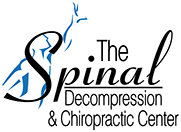Click HERE To Buy Tretiva Online ↓

Understanding the Basics: What Is Tretiva?
Tretiva is a medication primarily used for severe acne that's unresponsive to other treatments. Its active ingredient, isotretinoin, works by reducing oil production in the skin, effectively targeting the root causes of acne. Originally derived from Vitamin A, Tretiva combats all forms of acne, including cystic and nodular varieties.
| Strengths | Weaknesses |
|---|---|
| Highly effective for severe acne | Potential for serious side effects |
| Treats various acne types | Requires strict medical supervision |
Given its potency, it’s often considered a last-resort option.
Topical Treatments: Creams, Gels, and Lotions

When it comes to managing acne, topical treatments including creams, gels, and lotions are often the first line of defense. These options work directly on the skin's surface, delivering active ingredients that target acne-causing bacteria, reduce inflammation, and unclog pores. Retinoids, benzoyl peroxide, and salicylic acid are common ingredients found in these products. For instance, tretiva stands out as a potent retinoid that encourages cell turnover and prevents the formation of new acne lesions.
While effective for many, the choice of a topical treatment depends on the severity of the acne and individual skin types. Those with sensitive skin might initially experience redness or peeling. However, the benefits of these treatments typically outweigh the downsides, particularly when guided by a dermatologist. Using a combination of these topical solutions can often prove more effective, balancing the skin's needs while minimizing side effects.
Oral Medications: Antibiotics and Hormonal Options
When it comes to tackling severe acne, oral medications can be highly effective. Antibiotics like doxycycline and erythromycin are often prescribed to reduce the bacteria responsible for acne and to diminish inflammation. However, these antibiotics usually require prolonged use, which can lead to antibiotic resistance and other health issues over time.
On the hormonal front, options such as birth control pills and spironolactone can help regulate hormones that cause acne, making them particularly helpful for women experiencing hormonal imbalances. While these treatments can be highly effective, they also come with potential side effects like weight gain, mood swings, and increased blood pressure.
Comparing these to tretiva, an oral retinoid, it's essential to note that tretiva works by promoting cell turnover and reducing oil production. While highly effective, tretiva also carries its own set of potential side effects, including severe dryness and the risk of birth defects, making it imperative for women to use contraception while on this medication.
In essence, the choice between antibiotics, hormonal treatments, and tretiva should be made in consultation with a healthcare professional to tailor the approach best suited for individual needs and to manage potential side effects proactively.
Natural Remedies: Pros and Cons of Holistic Approaches

Natural remedies for acne include ingredients like tea tree oil, aloe vera, and honey, which are often praised for their antibacterial and soothing properties. These holistic approaches appeal to those seeking organic solutions free from synthetic chemicals. Unlike tretiva, natural remedies usually come with minimal side effects, making them a gentler option for sensitive skin. However, their efficacy can vary significantly from person to person, and they generally take longer to show results.
On the downside, natural acne treatments require consistent and prolonged use. The potency and purity of natural ingredients can also fluctuate, leading to inconsistent outcomes. For someone with severe acne, relying solely on natural remedies might not provide the comprehensive treatment needed. While tretiva offers a more aggressive approach to acne control through regulated dosages, it often brings side effects that necessitate medical supervision.
Balancing the pros and cons of natural remedies with treatments like tretiva involves weighing the desire for a gentle, chemical-free regimen against the necessity for effective and prompt results. For individuals with mild acne, natural methodologies can be a viable supplement to a broader skincare regimen. However, for those dealing with more persistent issues, clinical treatments may offer the reliability and efficacy essential for long-term skin health.
Laser and Light Therapies: Modern Technological Solutions
When it comes to tackling persistent acne, modern laser and light therapies offer compelling options that stand apart from traditional treatments like tretiva. Utilizing concentrated light energy, these methods target acne-causing bacteria and reduce inflammation, often yielding faster results. Techniques such as blue light therapy and fractional laser treatments can deliver significant improvements—sometimes within weeks.
Compared to tretiva, which can take several months to show impact, laser therapies provide a quicker solution. However, they are often more expensive and may require multiple sessions. Below, we present a comparison to help you weigh your options:
| Tretiva | Laser & Light Therapies |
|---|---|
| Oral medication, slower results | Fast-acting, non-invasive |
| Costs: Moderate | Costs: High |
| Side Effects: Dry skin, irritation | Side Effects: Redness, sensitivity |
Ultimately, while tretiva remains a trusted solution for many, laser and light therapies offer an advanced and efficient alternative, albeit with a higher upfront cost.
Comparing Side Effects: Short-term and Long-term Impacts
Navigating the landscape of acne treatments inevitably brings the question of side effects to the forefront. Tretiva, a potent oral retinoid, is renowned for its effectiveness but often comes with more pronounced initial side effects such as dry skin, chapped lips, and increased sensitivity to sunlight. However, these typically subside after the first few weeks of treatment.
In comparison, topical treatments like benzoyl peroxide or salicylic acid are usually less invasive and come with milder side effects such as slight redness or peeling, making them suitable for less severe acne cases. Yet, they may not provide the comprehensive, long-term changes that Tretiva can offer.
On the other hand, natural remedies and holistic approaches boast minimal side effects, often appealing to those wary of pharmaceutical solutions. However, their efficacy varies greatly, and they may not suffice for everyone, particularly for severe acne sufferers. Thus, it's crucial to weigh these considerations when choosing an acne treatment plan.
